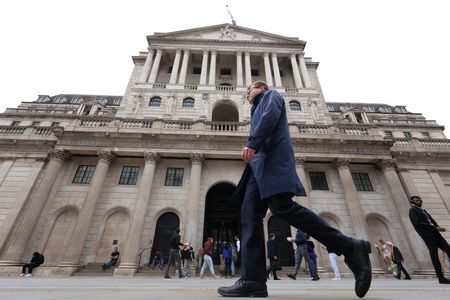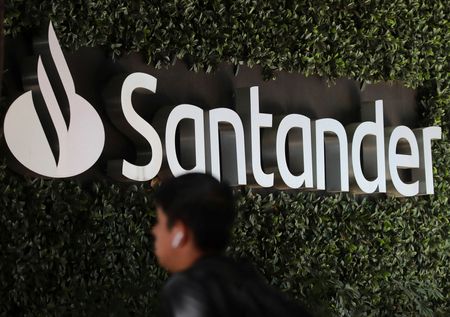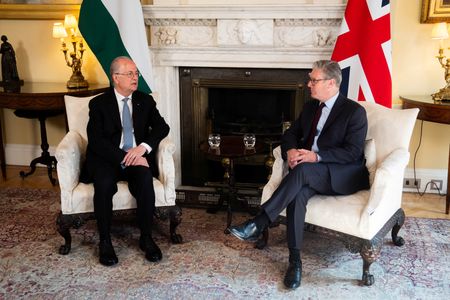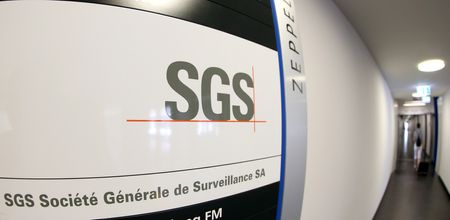By William Schomberg
LONDON (Reuters) -British companies are struggling to grow and the job market continues to weaken, but inflation pressures are still lurking in the economy, according to surveys that are likely to keep the Bank of England on course for only gradual interest rate cuts.
S&P Global’s preliminary UK Composite Purchasing Managers’ Index (PMI) slowed to 51.0 in July from 52.0 in June, not far above the 50.0 level that separates growth from contraction. A Reuters poll had forecast a smaller fall to 51.8.
The survey’s employment gauge dropped to its lowest since February, with businesses in part blaming the decision by finance minister Rachel Reeves to make them pay more in staff social security contributions from April.
“Particularly worrying is the sustained impact of the budget measures on employment,” Chris Williamson, chief business economist at S&P Global Market Intelligence, said.
The impact of higher trade tariffs, launched by U.S. President Donald Trump, also weighed on firms.
A separate survey by the Confederation of British Industry suggested Britain’s manufacturing sector, which accounts for about 10% of the economy, had stabilised after a downturn. But the outlook remains fragile with factories cutting jobs again.
The BoE is expected to reduce interest rates for the fifth time in 12 months on August 7 as it focuses on the slowdown in the jobs market, despite inflation rising further above the central bank’s 2% target to 3.6% in June.
Thursday’s surveys underscored the BoE’s dilemma with companies facing price pressures as well as weaker demand.
The PMI showed prices charged by firms speeding up for the first time since April as suppliers sought to offset some of Reeves’ tax increase and higher wage bills.
“In our view, the Bank should be more concerned about the ominous state of the jobs market and what it implies for wage growth,” James Smith, an economist with ING, said.
However, another three-way split on the BoE’s Monetary Policy Committee was possible in August similar to May’s voting pattern, Smith said.
At that meeting, two members voted for a big half-point rate cut due to their worries about the jobs market, while five backed a smaller quarter-point cut and two said borrowing costs should stay on hold because of inflation risks.
Matt Swannell, chief economic advisor to the EY ITEM Club, a forecasting organisation, said it remained unlikely that the BoE would speed up its rate cuts after August’s reduction.
“We’re yet to see the sort of deterioration in the official labour market or activity data that could prompt a pivot to faster rate cuts,” Swannell said.
S&P Global’s Williamson said the PMI survey suggested Britain’s economy was growing at a quarterly pace of just 0.1% with a risk that it could prove weaker.
The PMI for the services sector slipped to 51.2 in July from June’s 52.8. The manufacturing sector PMI rose for a fourth month in a row to 48.2 from 47.7 but remained in contraction territory for a 10th consecutive month.
(Writing by William Schomberg; Editing by Joe Bavier)











